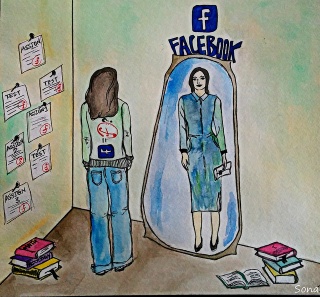Learning in a digital age/LiDA102/Digital practices in the workplace/Personal and professional identity
On the one hand, we need to be careful about what we post online because this can have a negative impact on future career prospects or current employment. We must also be cognisant of the different limitations that different careers place on what can be shared publicly and what needs to stay private. On the other hand, building a strong learning or professional network online is very powerful in staying up to date with new trends and establishing connections with your peers.
In this section, we reflect on the balance between public and private in a digital world, recognising that this is going to be different for each person depending on their own environments and professional circumstances. We will also explore how like-minded professionals in your field of interest network online.
| “ | The impact exercised by ICTs is due to at least four major transformations: the blurring of the distinction between reality and virtuality; the blurring of the distinction between human, machine and nature; the reversal from information scarcity to information abundance; and the shift from the primacy of stand-alone things, properties, and binary relations, to the primacy of interactions, processes and networks. | ” |
| —Luciano Floridi[1]. | ||
Start here
Tasks
Consider the following questions:
- Find out how like-minded professionals in your career or future career, field, discipline etc are networking online (for example Twitter, LinkEdIn groups, other websites?)
- What hashtags, if any, are being used for conversations in your chosen field?
- What are the topical areas of discussion at the moment?
- How could your field of interest improve professional networking online?
- Do organisations in your field place restrictions on employees participating in social networks? (See for example Corporate Social Media Policies: The Good, the Mediocre, and the Ugly, and More Social Media Policies: LA Times, Harvard Law, Microsoft, and Cisco.)
Outputs
References
- ↑ Floridi, L. (Ed.). (2015). The Onlife Manifesto - Being Human in a Hyperconnected Era. Springer.


